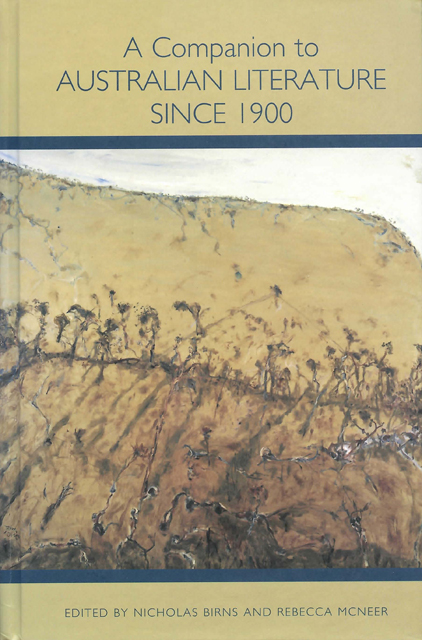Book contents
- Frontmatter
- Dedication
- Contents
- Chronology of Main Events in Australian History, 1901–2005
- Acknowledgments
- Note on the Cover Illustration and Artist
- Introduction
- Part 1 Identities
- Part 2 Writing Across Time
- Part 3 International Reputations
- Part 4 Writers and Regions
- Part 5 Beyond the Canon
- Notes on the Contributors
- Index
7 - The Demidenko Affair and Australian Hoaxes
Published online by Cambridge University Press: 10 March 2023
- Frontmatter
- Dedication
- Contents
- Chronology of Main Events in Australian History, 1901–2005
- Acknowledgments
- Note on the Cover Illustration and Artist
- Introduction
- Part 1 Identities
- Part 2 Writing Across Time
- Part 3 International Reputations
- Part 4 Writers and Regions
- Part 5 Beyond the Canon
- Notes on the Contributors
- Index
Summary
Norma Khouri’s International best-selling autobiography, Forbidden Love (2003), is a story of love across a religious divide; set in Jordan, it ends with Khouri fleeing her homeland after the “honor” killing of her closest friend, Dalia, who had fallen in love with a Christian air-force officer and consequently been murdered by her own family. Believing that she had fled Jordan in fear of her life, Random House, Khouri’s Australian publisher, had assisted her in obtaining a Temporary Protection Visa in Australia. Khouri was living on Bribie Island, off the coast of Brisbane, when the Sydney Morning Herald exposed her “autobiography” as a fabrication.
With sales presumably boosted by multiple and by all accounts very emotional public appearances by the author, the Khouri affair reveals a market hungry for exotic life narratives and prompts questions about the extent to which Forbidden Love’s appeal had to do with its reinforcing of anti-Muslim stereotypes at a time when Australia was taking part in the 2003 invasion of Iraq led by the United States.
Khouri is not an Australian (she was born in Jordan but migrated to the United States when she was three), but in the reporting of the event, it was almost as if she was claimed as one, not just because she had settled in Australia, but because of a series of high-profile Australian literary hoaxes of which she had come to be seen as the latest manifestation.
The most famous of these is the mid-1990s scandal surrounding Helen Demidenko. Demidenko’s novel, The Hand That Signed the Paper (1994), purported to be based on her family’s experiences of the Ukrainian famine in the 1930s and their subsequent collaboration with the Nazis during the Holocaust. More specifically, the novel tells the story of the struggle of the Australian protagonist, a young university student named Fiona Kovalenko, to come to terms with her uncle’s trial for war crimes. The Hand was awarded the Vogel prize for an unpublished first manuscript by an author under the age of thirty-five.
- Type
- Chapter
- Information
- A Companion to Australian Literature since 1900 , pp. 127 - 138Publisher: Boydell & BrewerPrint publication year: 2010

